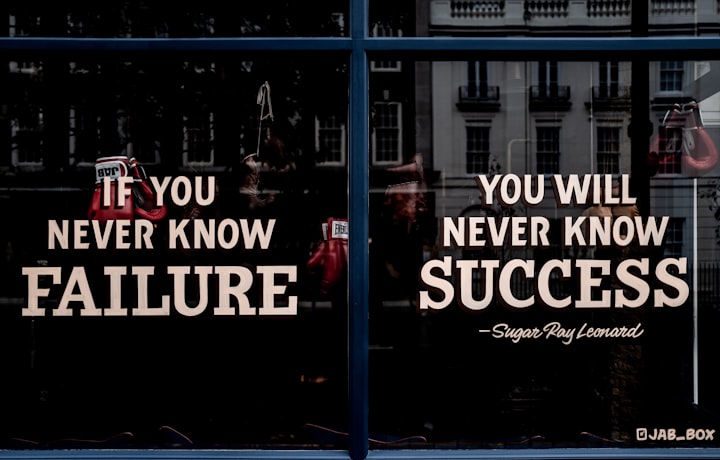13 COGNITIVE DISTORTIONS TO RESTRUCTURE BY THE END OF THE YEAR
People will do anything, no matter how absurd to avoid facing their own souls

People will do anything, no matter how absurd to avoid facing their own souls, once wrote Carl Jung.
We are all biased with different thinking patterns and brain shortcuts that we created in time to have time to cope with life and change. Sometimes these cognitive distortions make it hard for us to progress in life, and the universe keeps throwing at us the same lessons in different formats, and we still don’t get it. So, by the end of the year, let’s work together to restructure those mental biases we all deal with.
There are 13 common cognitive distortions that I will be briefly explaining and you could work on one at a time until the end of the year to make sure you step into the new one with a bright fresh thinking.
1.Overgeneralising – You see a constant, negative pattern based on one event. Maybe you think that if you did not get the position you applied for, you are not good enough and you think there is no point in applying to a future job ad. But you base your future thoughts and eventually behaviours around a single event. Step out of your mind and don’t take your thoughts so seriously.
2.Blaming / Denying – You blame others for your problems or mistakes OR you blame yourself when it wasn’t entirely your fault. You could say that you did not obtain that job because you did not have connections or because the company liked a specific type of personality or that you did not prepare for the interview. If you indeed did not prepare for the interview, that’s easily fixed, next time, you know what you need to focus more on, since you passed the CV screening. If you believe that the company or another person is to blame for your failure, think again, maybe you should consider that when you put the blame entirely on others for something you did not achieved, it could be that you are avoiding to feel the real emotions behind your lack of success. The real emotion behind that could lay in the truth that you did not prepare enough, did not have enough experience, did not have enough of confidence to show it, and so on. Always try to see beyond the surfaced emotion and train of thoughts.
3.Shoulds – you have a rigid code of conduct dictating how you and others should behave. You criticise yourself harshly when you fail to follow these rules. Should lists are so dangerous to the mind. They are transforming you into a perfectionist, into a critic and that’s not at all equal to self-love and mindfulness and good judgement. On the contrary, shoulds are infectious and must be replaced with something more kind to ourselves: the right to make mistakes, the patience to learn from one’s mistakes and the determination to challenge an existing no-longer serving belief, such as the “should theory”. Also, to gain more understanding on the topic, have a read here on the crossroads between should and must in the pursuit of happiness.
4.All or nothing thinking – You see things as absolutes, no grey areas. This ties very well with the one above. Give yourself permission to make mistakes and to understand that all things come and go. There is no white or black, as much as we would all want to shortcut things that we go through, and categorise it to make our lives easier, life is complex, so, so is our thinking.
5.Negativity bias – You notice all the negatives, but fail to notice the positives. For this one, sometimes, our parents have raised us with their own biases as their own knowledge to keep us safe from the world and to protect our future reckless choices by implementing a fear emotion in us every time we might get attracted by adventurous thoughts or behaviours. It’s ok to let go of that. Failure is a bruise, not a tattoo and even if a positive attitude does not spare you of negatives happening in your life, you should know, we need negatives too to develop the positives. There is something good in every bad, and something bad in every good. There is no white or black.
6. Catastrophising – You always expect the worst. As much as this could be a self-defensive mechanism, and sometimes it turns out to be good to have this idea in your head, as you actually get surprised by life, and something resplendent is thrown at you, this should be rarely thought or used. You cannot always expect the worst. You are made up of an energy of your thoughts. If you only believe bad things will happen, guess what will you be attracting in your life? Remember, you are energy. I will share with you a secret. Remember when you tell yourself or to others: “Don’t forget to… something?”. Do you remember what actually always happens? You forget or they forget. Why? Because you have trained your mind into a NO suggestion. Do NOT remember to do that. Instead, use the phrase “Remember to do this/ I will remember to….”. Use it and let me know how it worked for you in the comments! Also, to change this thinking pattern, I will give another example. Let’s say you think – “I can’t stand this” – to restructure this cognitive distortion you could say “I am severely distressed, but I will handle it. I can manage it!”.
ONLY GROW THOUGHTS IN YOUR BRAIN THAT YOU WOULDN’T MIND PUTTING IN A VASE.
7.Labelling – You label yourself negatively. You always speak of yourself with use of negative words. Sometimes we do this, because we lack confidence in ourselves and we tend to use less than positive thinking and sayings so that whoever hears us, can actually demount our beliefs. But when you are alone, there is no one to tell you otherwise. You never believe the mirror, and if you did, it would anyway tell you the opposite of what you want to actually hear, because you are saying it to yourself, in the hope you can cling to something that can save your day. Again, as Carl Jung pointed out, “people would do anything, to avoid facing their own souls.” Stop using bad words, such as poor, inferior, unacceptable, imperfect, defective, faulty, careless, miserable, rotten, incompetent, inept, awful, appalling, terrible, pathetic, useless, lousy, deficient and start replacing them with superb, jubilant, adorable, alluring, attractive, blooming, celestial, classy, dandy, elegant, divine, enchanting, exquisite (my favourite word) fancy, fabulous, gorgeous, incomparable, irresistible, magnetic, mesmerising, ravishing, splendid, sublime, top-notch. Because you are all of that and beyond. You are beautiful. And you deserve to live your life knowing that.
8.Magical thinking – You think everything will be better when … (you’re thinner, smarter, richer, get a new job, etc). You will not be better if you live believing something that has a potentiality to not come true because you are not acting upon it. Even if you do act upon it, a lot of the times, this magical thinking relates to not really being practical about what could lead you in the spot you believe it’s going to transform you into this queen of happiness. Again, you should refer to the above, but do not believe your thoughts, and don’t take them so seriously. All things come and go in life, and practising mindfulness and gratefulness is more achievable and can break down these thinking patterns of magically becoming something you think you want, when deep down, there is something else you need to focus on. Remember Carl Jung: “People will do anything, no matter how absurd, to avoid facing their own souls.” What are you avoiding by making use of magical thinking?
9.Over-personalizing – You make things personal, when they aren’t. You believe other people’s opinions are facts. You think what other people do or say is in reaction to you. I used to be a daily user of this destructive habit. Working in a call centre, you get a lot of people annoyed at the service or product and they say things such as “You do not understand”, “You think you know it all”, “You must listen to me, I am the customer” and I would easily get demotivated, annoyed, angry and sometimes even believe of myself of being incompetent. But I guess, you need to go through it to get out of it. Just be aware of this cognitive distortion and distort it in your favour. Instead of thinking of yourself to do everything well because you cannot cope with another negative feedback, say something like “I would prefer to perform well, but it’s not a disaster if I don’t.”
10.Mind -reading – you make assumptions about what other people are thinking. And we all are culprits on this one. We make assumptions because we are judgemental. And this is hard to get rid of. To reach that though, you first need to acknowledge there is a problem. That way you are half way through. For this, you can train yourself when speaking to people by listening in a mindful way, being fully present, without trying to control the conversation or the person you are speaking to think your way or convince them of something and to be free of judging their perspective. Rather, try understanding their perspective and see through their glasses. What do they see? What would they want to hear from you? What would you like to hear if you were in their shoes?
11.Double standard – You hold yourself to a higher standard than anyone else. I am the personification of this cognitive distortion. I am a perfectionist and I am still figuring out how to restructure this distortion in my mind. A lot of the times, people experiencing double standard demand a lot of themselves, are severe to themselves if they do not stand up to their own elevated expectations of what they should have accomplished and they may surround themselves with people who aren’t that professional. Sometimes they do, but they immediately feel the person and when they see that everyone that they’ve met so far fails their standards, they might start to overgeneralize and more biases are born. Be careful what you tolerate, you are teaching people how to treat you. If you demand a lot of yourself, and show this to others, they might start asking more from you, because they believe of you being capable of delivering more than anticipated. This puts you in a position of stress and pressure to accommodate your standard to even higher ones, because for a person with a double standard, nothing is ever good enough.
12. Fallacy of fairness – you think things should work out according to what you think is fair. People do not have the same standard as you do. People have their own level of fairness and correctness and consciousness. I get a lot frustrated by the fact that people do not see things as I see them and this thinking pattern falls into this category because I expect them to think the same way regarding specific general topics, such as cleanliness, as an example. The truth is, people are unique and so is their viewing on the world, and so is their behaviour. What you think is trash might be someone else’s treasure and vice-versa. That’s how you need to think all aspects of life to heal this cognitive distortion. Also, do remember that “everything that irritates us about others, can lead us to an understanding of ourselves” as Carl Jung said.
13.Emotional Reasoning – you think your feelings are reality. In fact, they only portray your perception of the world. They are unique and they do not mean they are highlighting the reality around you. If you feel crap, it does not mean you are horrible. That’s just your interpretation of an emotion. Step out of that behavioural pattern and be kind to yourself. Appreciate what you have and who you are and who you are becoming. To reconstruct this cognitive distortion of emotional reasoning, you have to start thinking that your mental health is to be treated with the same importance as your physical health. When you think “I am worthless/ I feel worthless” do believe that YOUR EMOTIONS DO NOT DICTATE YOUR REALITY and say it to you out loud: “My emotions do not dictate my reality”.
BE PATIENT WITH YOURSELF AS NOTHING IN NATURE BLOOMS ALL YEAR ROUND.
More words to heal you and start the transformation process until the end of the year:
GATHER COURAGE LIKE WILDFLOWERS. (Jak Major)
Sometimes, when you’re in a dark place, you think you have been buried but actually you have been planted.
I would like to end today’s post with one word, this is EQUANIMITY.
Equanimity is a mental calmness, composure and evenness of temper, especially in a difficult situation. I believe that all these cognitive distortions are ways we use to cope with life and the experiences we face. We need mindfulness and lots of self-care to achieve this equanimity thinking pattern and I am confident with enough information and explanation and exposure to uplifting content; we can all be examples of challenging our existing beliefs and restructuring our most common cognitive distortions that stop us from truly come to terms with tranquillity and peace and our own unique story of life or career success.
WHICH COGNITIVE DISTORTION DO YOU FIND YOURSELF HARD TO OVERCOME?
About the Creator
Annaelle Artsy
Me, myself & I
Slow living in the reading






Comments
There are no comments for this story
Be the first to respond and start the conversation.